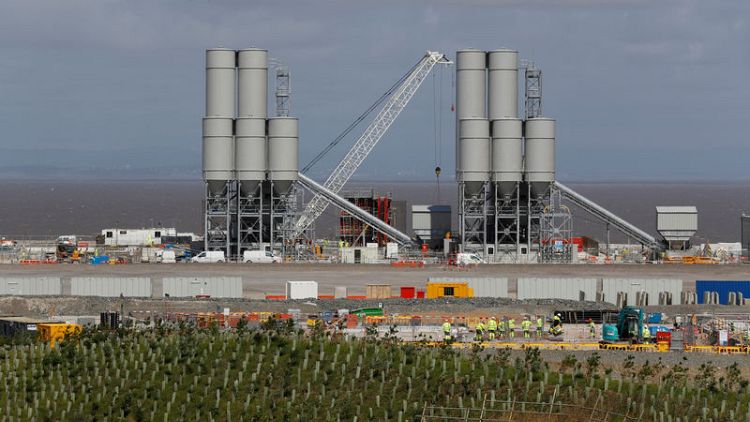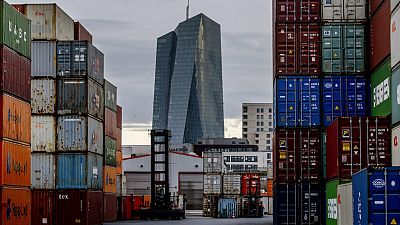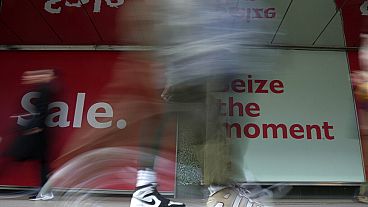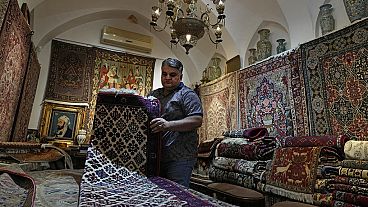By Sudip Kar-Gupta and Susanna Twidale
PARIS/LONDON (Reuters) - EDF said on Wednesday its Hinkley Point C nuclear plant in Britain could cost up to 2.9 billion pounds more than its last estimate, and face further delays.
EDF is already grappling with investigations into welding and steel used in its French reactors, and delays and cost over-runs to other new projects in France and Finland.
The British project cost hike also comes just days after the country saw an auction for offshore wind projects clear at a record low, raising questions of the cost competitiveness of new nuclear.
EDF said Hinkley Point C was estimated to cost 21.5-22.5 billion pounds ($26.8-$28 billion), up 1.9-2.9 billion pounds from its latest estimate.
EDF shares were down more than 6% by 0914 GMT and are now down 27% since the start of 2019.
EDF initially promised Hinkley C would be powering ovens to cook Britons' Christmas dinners in 2017 and was originally forecast to cost 18 billion pounds.
The 3.2 gigawatt (GW) plant, which EDF is building with China General Nuclear Power Corp (CGN), is now expected to begin generation at the end of 2025.
"We are delivering on our milestones and although the risk of a delay has increased, the schedule is unchanged and we remain focused on delivering the first power in 2025," Stuart Crooks, managing director of Hinkley Point C, said in a letter to staff.
Crooks said the cost increase was related to challenging ground conditions at the site.
The price hike does not mean higher costs for consumers as under the subsidy scheme agreed the company only receives money once the plant begins producing electricity.
"Any increase in costs will be borne entirely by EDF Energy and their investment partners and not by consumers or taxpayers," Britain's Department for Business, Energy and Industrial Strategy said on Twitter.
For future projects however, such as Sizewell C which EDF hopes to build with CGN, EDF is seeking a different, regulated-asset-based funding model, which would see consumers pay during the construction phase.
EDF said this would ultimately lead to lower costs for new nuclear but it would also leave taxpayers liable for any cost over-runs and delays during construction.
Britain needs to invest in new capacity to replace its aging coal and nuclear plants due to close in the 2020s.
Once complete, Hinkley C is expected to provide around 7% of the country's electricity.
EDF, which operates and owns Britain's eight nuclear plants had hoped to replace closing plants with a new fleet.
All but one of the eight plants is scheduled to close by the end of 2030.
"A cost increase of around 10% isn't horrific. The issue however is you have a company with a market cap of 31 billion euros that is currently trading at a year low in a sector that has become increasingly more regulated in terms of price caps," said MB Capital director Marcus Bullus.
(Reporting by Sudip Kar-Gupta in Paris and Susanna Twidale in London; editing by Kim Coghill, Jason Neely and David Evans)



